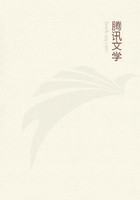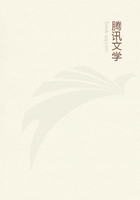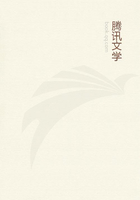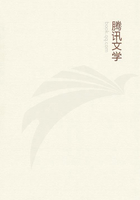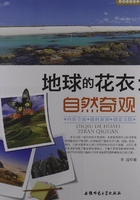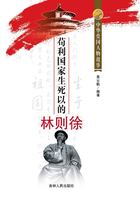The Romans of the early Christian period had covered the floors and the walls of their temples and houses with mosaics; pictures made of coloured bits of glass. But this art had been exceedingly difficult. It gave the painter no chance to express all he wanted to say, as all children know who have ever tried to make figures out of coloured blocks of wood. The art of mosaic painting therefore died out during the late Middle Ages except in Russia, where the Byzantine mosaic painters had found a refuge after the fall of Constantinople and continued to ornament the walls of the orthodox churches until the day of the Bolsheviki, when there was an end to the building of churches.
Of course, the mediaeval painter could mix his colours with the water of the wet plaster which was put upon the walls of the churches. This method of painting upon "fresh plaster"(which was generally called "fresco" or "fresh" painting) was very popular for many centuries. To-day, it is as rare as the art of painting miniatures in manuscripts and among the hundreds of artists of our modern cities there is perhaps one who can handle this medium successfully. But during the Middle Ages there was no other way and the artists were "fresco" workers for lack of something better. The method however had certain great disadvantages. Very often the plaster came off the walls after only a few years, or dampness spoiled the pictures, just as dampness will spoil the pattern of our wall paper. People tried every imaginable expedient to get away from this plaster background. They tried to mix their colours with wine and vinegar and with honey and with the sticky white of egg, but none of these methods were satisfactory.
For more than a thousand years these experiments continued. In painting pictures upon the parchment leaves of manuscripts the mediaeval artists were very successful. But when it came to covering large spaces of wood or stone with paint which would stick, they did not succeed very well.
At last, during the first half of the fifteenth century, the problem was solved in the southern Netherlands by Jan and Hubert van Eyck. The famous Flemish brothers mixed their paint with specially prepared oils and this allowed them to use wood and canvas or stone or anything else as a background for their pictures.
But by this time the religious ardour of the early Middle Ages was a thing of the past. The rich burghers of the cities were succeeding the bishops as patrons of the arts. And as art invariably follows the full dinner-pail, the artists now began to work for these worldly employers and painted pictures for kings, for grand-dukes and for rich bankers. Within a very short time, the new method of painting with oil spread through Europe and in every country there developed a school of special painting which showed the characteristic tastes of the people for whom these portraits and landscapes were made.
In Spain, for example, Velasquez painted court-dwarfs and the weavers of the royal tapestry-factories, and all sorts of persons and subjects connected with the king and his court.
But in Holland, Rembrandt and Frans Hals and Vermeer painted the barnyard of the merchant's house, and they painted his rather dowdy wife and his healthy but bumptious children and the ships which had brought him his wealth. In Italy on the other hand, where the Pope remained the largest patron of the arts, Michelangelo and Correggio continued to paint Madonnas and Saints, while in England, where the aristocracy was very rich and powerful and in France where the kings had become uppermost in the state, the artists painted distinguished gentlemen who were members of the government, and very lovely ladies who were friends of His Majesty.
The great change in painting, which came about with the neglect of the old church and the rise of a new class in society, was reflected in all other forms of art. The invention of printing had made it possible for authors to win fame and reputation by writing books for the multitudes. In this way arose the profession of the novelist and the illustrator. But the people who had money enough to buy the new books were not the sort who liked to sit at home of nights, looking at the ceiling or just sitting. They wanted to be amused. The few minstrels of the Middle Ages were not sufficient to cover the demand for entertainment. For the first time since the early Greek city- states of two thousand years before, the professional playwright had a chance to ply his trade. The Middle Ages had known the theatre merely as part of certain church celebrations.
The tragedies of the thirteenth and fourteenth centuries had told the story of the suffering of our Lord. But during the sixteenth century the worldly theatre made its reappearance. It is true that, at first, the position of the professional playwright and actor was not a very high one.
William Shakespeare was regarded as a sort of circus-fellow who amused his neighbours with his tragedies and comedies.
But when he died in the year 1616 he had begun to enjoy the respect of his neighbours and actors were no longer subjects of police supervision.
William's contemporary, Lope de Vega, the incredible Spaniard who wrote no less than 1800 worldly and 400 religious plays, was a person of rank who received the papal approval upon his work. A century later, Moliere, the Frenchman, was deemed worthy of the companionship of none less than King Louis XIV.
Since then, the theatre has enjoyed an ever increasing affection on the part of the people. To-day a "theatre" is part of every well-regulated city, and the "silent drama" of the movies has penetrated to the tiniest of our prairie hamlets.
Another art, however, was to become the most popular of all. That was music. Most of the old art-forms demanded a great deal of technical skill. It takes years and years of practice before our clumsy hand is able to follow the commands of the brain and reproduce our vision upon canvas or in marble.

